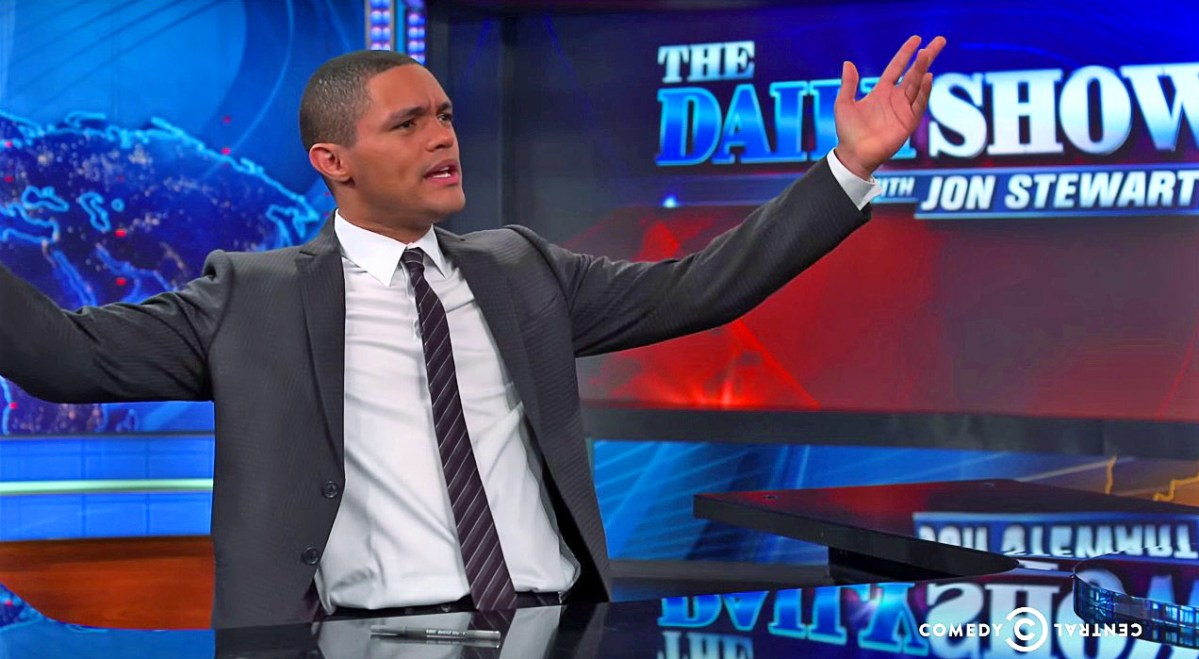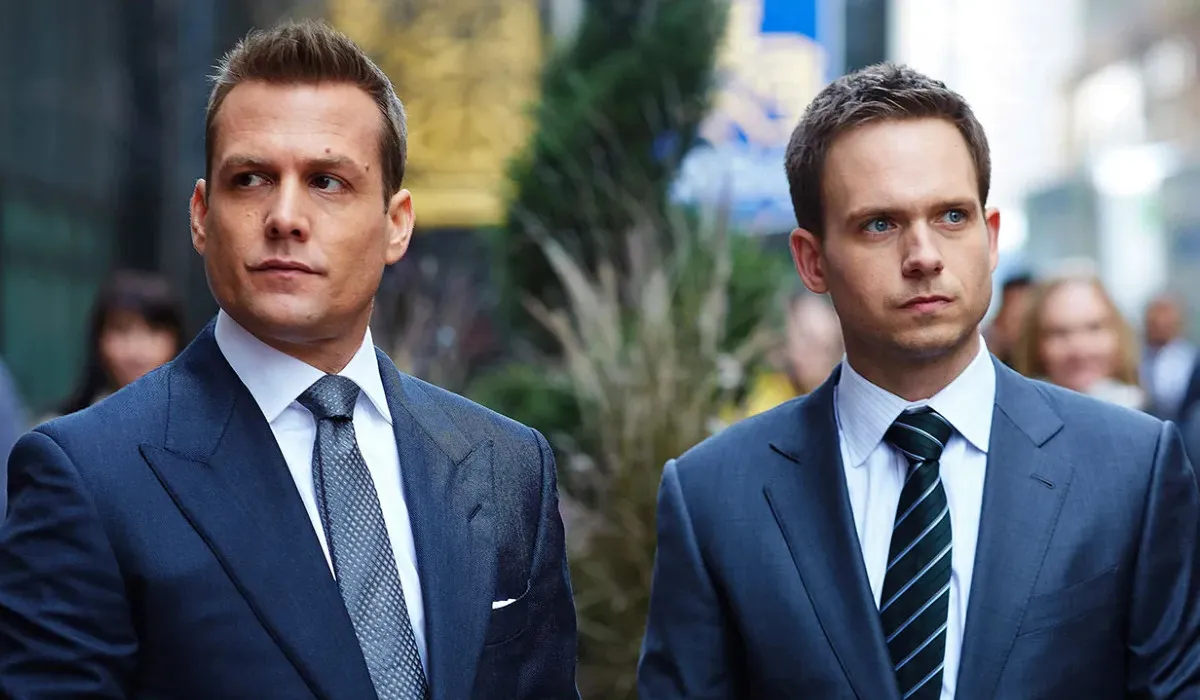Ever since Trevor Noah took up Jon Stewart’s mantle on The Daily Show, the headline “How Did Trevor Noah Do” has appeared over and over and over. How did he do on his first night? His first week? How did he do covering X? How did he do covering Y? Or Z? Above, I’ve taken a screenshot of the first three Google results, but rest assured there are many more underneath those three.
Today, Pajiba asked, “How Did Trevor Noah Do Covering His First Presidential Debate?” Here’s the thing, though: Trevor Noah isn’t the only person who covered the presidential debate on The Daily Show. He hosted the show, of course, and he did “fine,” in Pajiba’s words. But there are other people involved in the creation of the show and the way that it’s structured, from its writers (whose jokes will invariably be attributed to whoever delivers them, as happens on all comedy shows) to its correspondents (shout-out to Jessica Williams and Roy Wood, Jr. for their ace coverage).
On talk shows like this, all of the credit—and all of the blame—seems to invariably fall to the host of the show. Perhaps this framing makes a little more sense in the case of Stephen Colbert’s new gig on The Late Show—but even though Colbert hosts every segment on that show (and even stars in his own off-location segments), we all know deep down that other people are writing it for him. Right? … We all do know that, right? He’s just delivering the jokes with his masterful cadence. That’s his job, and it’s a hard job, but he doesn’t have to write a full hour of TV by his lonesome every single day.
On The Daily Show, the team effort seems even more obvious—to me, at least. The writers may be sadly invisible to our eyes, but the invaluable work of correspondents is what has made The Daily Show so special over the years. It’s not just been about Jon Stewart’s joke delivery, although that’s part of what helped the show succeed. It’s also about the jokes themselves, not to mention all of the other people who take part in building the show.
According to Pajiba, Trevor Noah’s stint has resulted in some lower ratings so far—down over 30 percent, and that’s during America’s big-deal political season, so … not a great sign. Perhaps that’s all because of Noah’s joke delivery. Or perhaps it’s because the writers haven’t gotten used to writing for Trevor Noah, as opposed to Jon Stewart, yet. Or perhaps it’s because the news-as-comedy show format has become so commonplace, ironically due to the success of The Daily Show, which seems to have homegrown its own future competitors.
These days, if you try to keep up with watching The Daily Show, Stephen Colbert’s new political bent on The Late Show, and The Nightly Show, you’ll have to bear some repetition, as well as unintentionally similar segments and jokes. (How many times can I crack a smile about the Pope’s visit? Not that many, I found out.) Last Week Tonight doesn’t usually cover the same ground, but it’s still yet another example of the form. I hope you like suit-wearing men with deadpan delivery interspersed with occasional off-topic pop culture references, because that is in.
None of that is Trevor Noah’s fault, of course. It’s strange to see his successes and failures evaluated as though they occur in a vacuum, as opposed to within a crowded space full of other influencers and creators, both on his own team and within his industry. We all did this with Jon Stewart, too. Rather than crediting his team, we credited him alone with reinventing news coverage and kick-starting the wealth of news comedy shows that we see now. Admittedly, Stewart had a hand in producing a lot of these shows and ensuring this new trend would happen, but that doesn’t mean there aren’t a lot of other forces behind the scenes that don’t have the same visibility or recognition.
Even The Daily Show‘s booming success in the early aughts (which followed on the heels of its lengthy trajectory of being an obscure comedy show that almost no one watched) was reliant upon circumstances way beyond Stewart’s control, such as the political changes that America underwent during that time. Success is about circumstances and luck in addition to talent, and when I say talent, I don’t just refer to the on-camera faces that we know and love; I also mean the numerous other talents that have contributed to these shows’ successes. And failures, too.
So … how is Trevor Noah doing? Are we giving him enough credit for his successes? Are we placing too much blame on him for his failures? Am I just a weirdo for being annoyed by seeing “how did Trevor Noah do” in every headline for the past several weeks? And why do we keep asking this about Trevor Noah and not Stephen Colbert? Does that mean Stephen Colbert’s cleared some sort of hump that Trevor Noah hasn’t? Or could there be some other notable difference between these two men that might lead to undue scrutiny being placed upon Trevor Noah … hmmmmm … nope, can’t think of anything.
(via Pajiba, featured image via Comedy Central)
—Please make note of The Mary Sue’s general comment policy.—
Do you follow The Mary Sue on Twitter, Facebook, Tumblr, Pinterest, & Google +?









Published: Oct 15, 2015 11:51 am